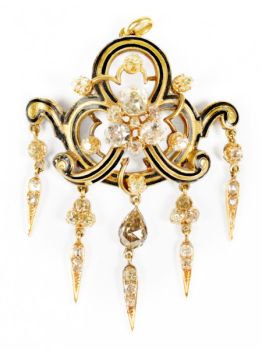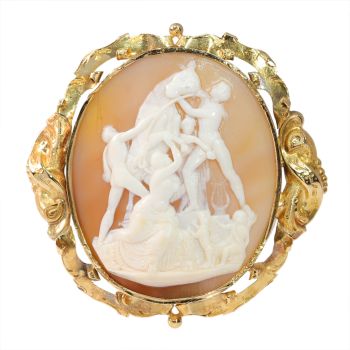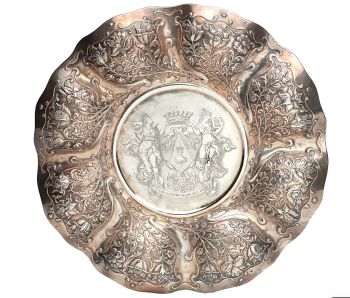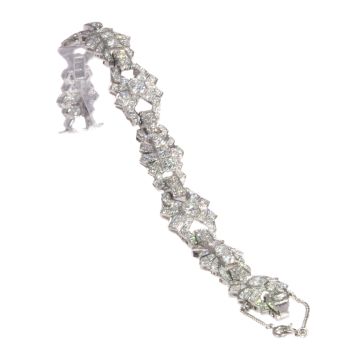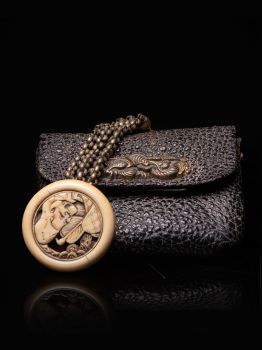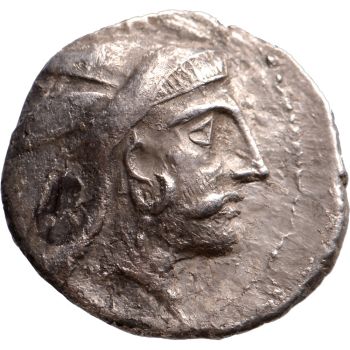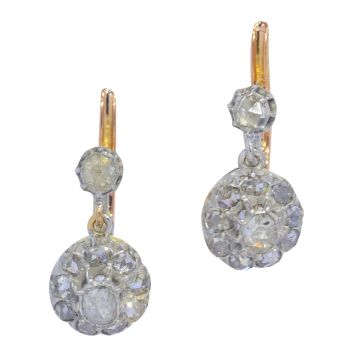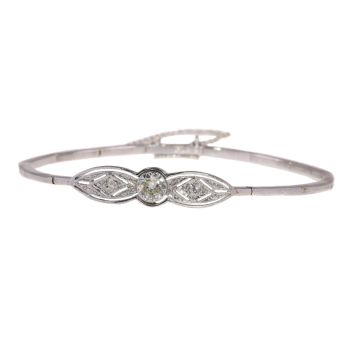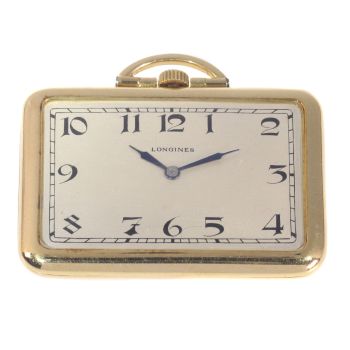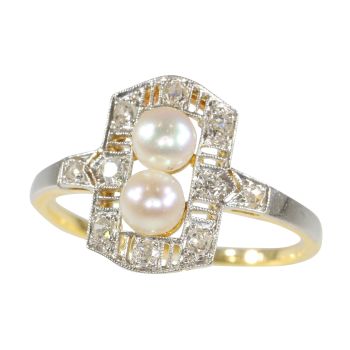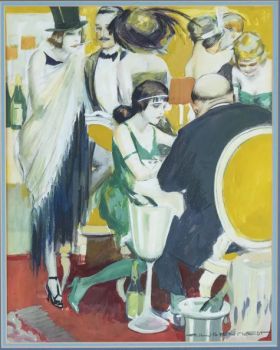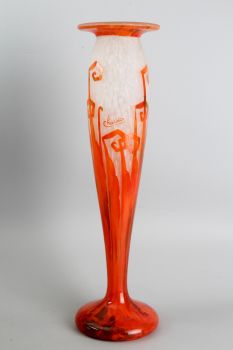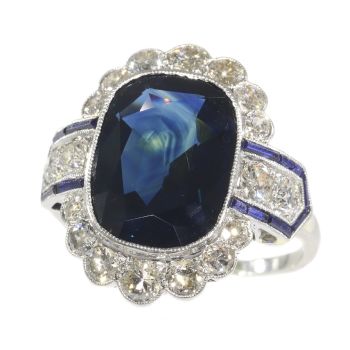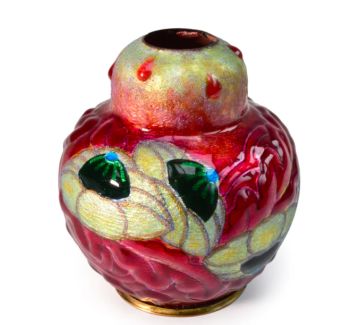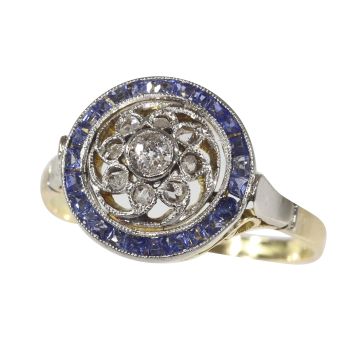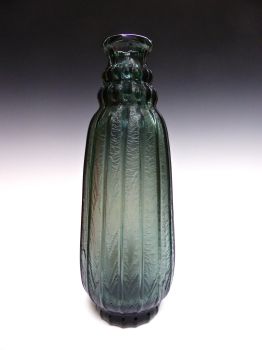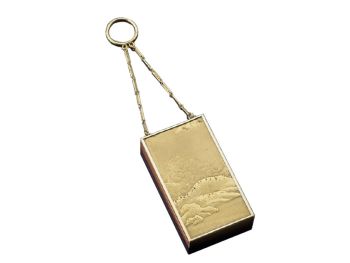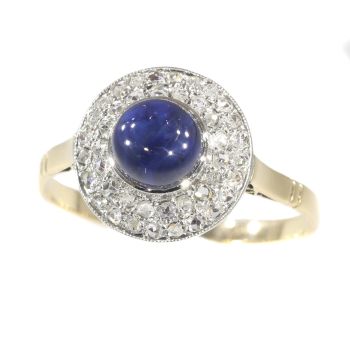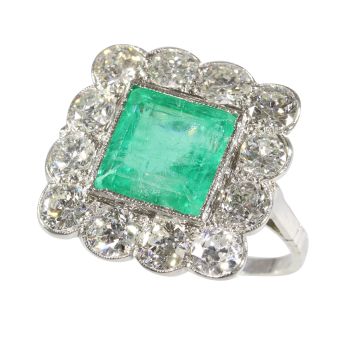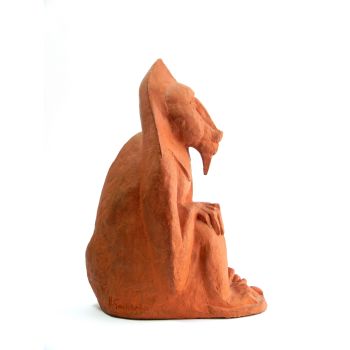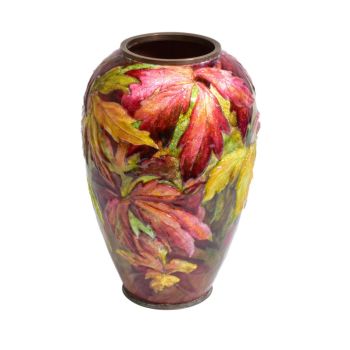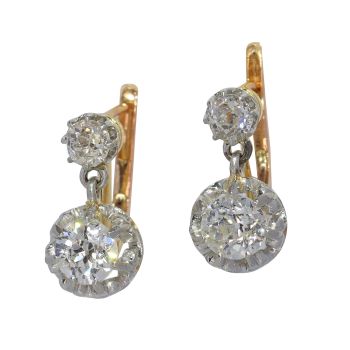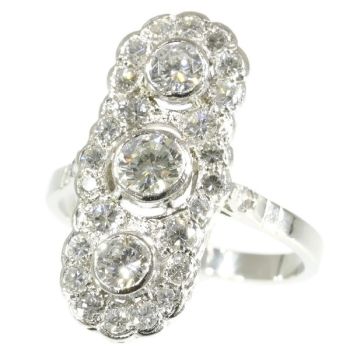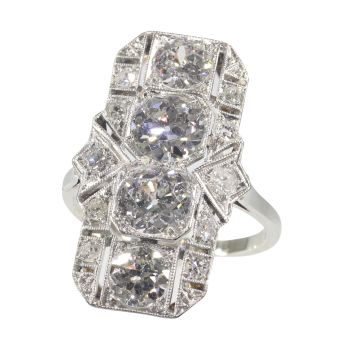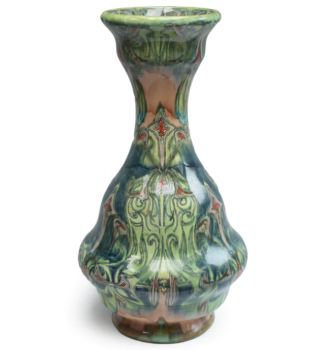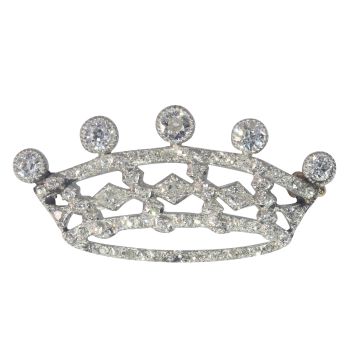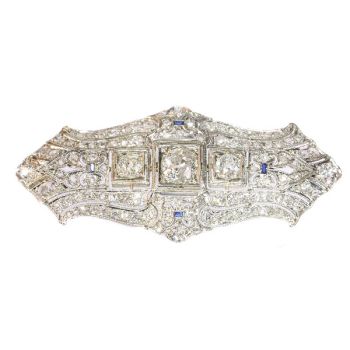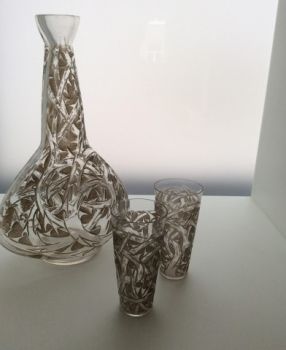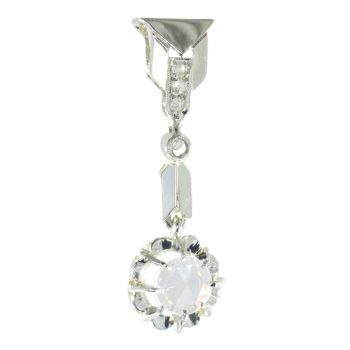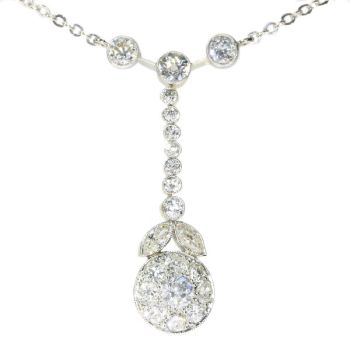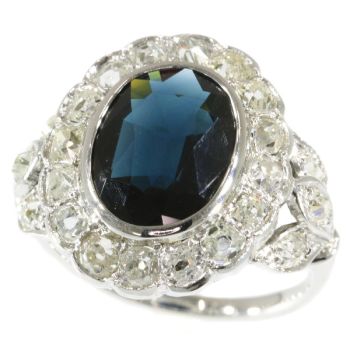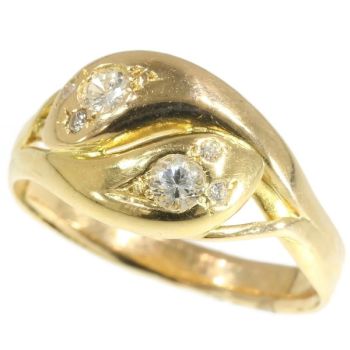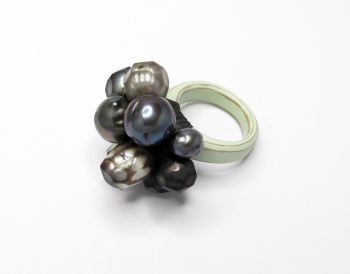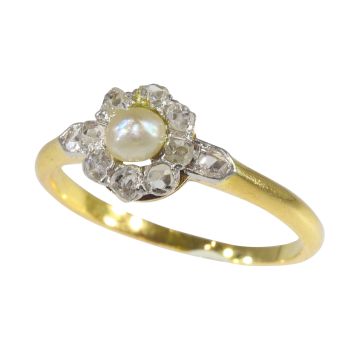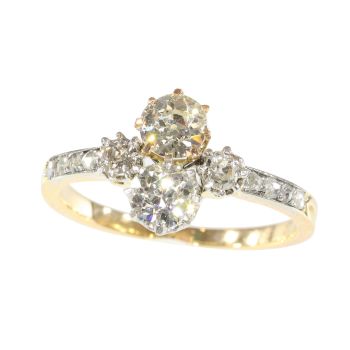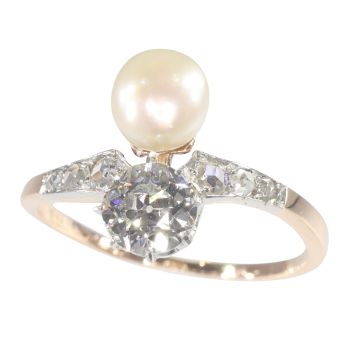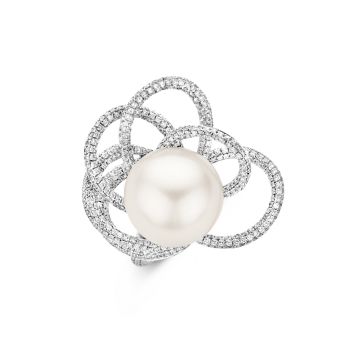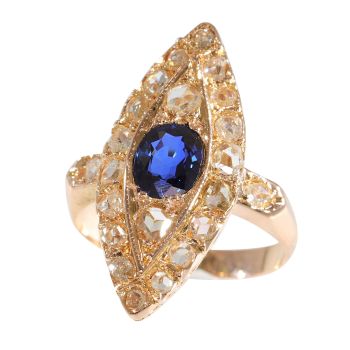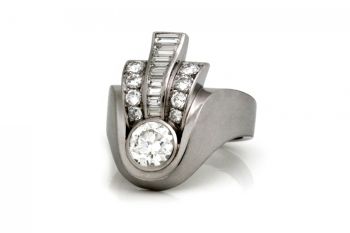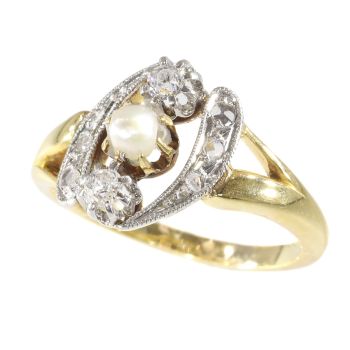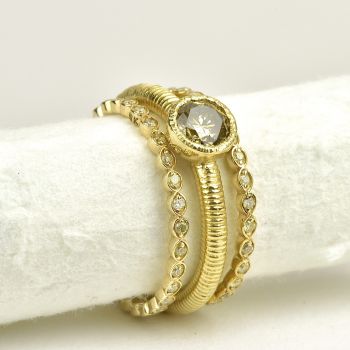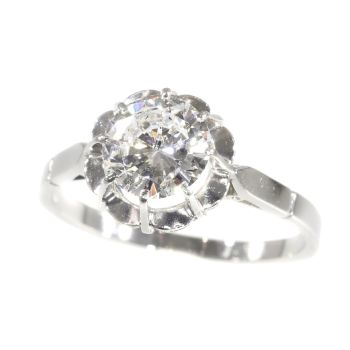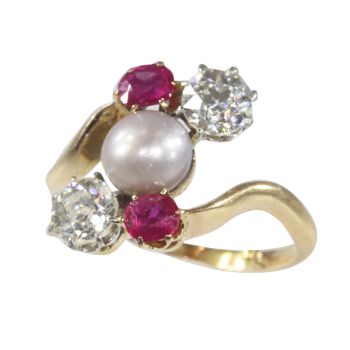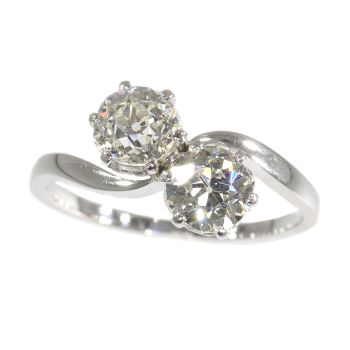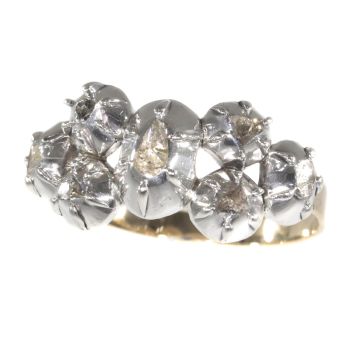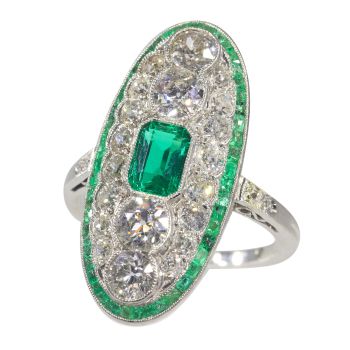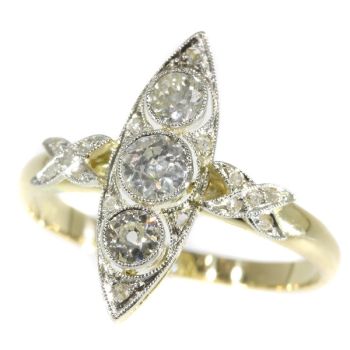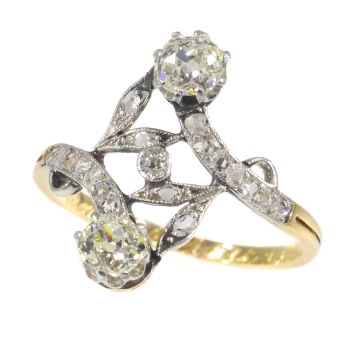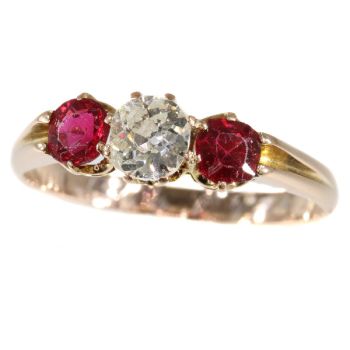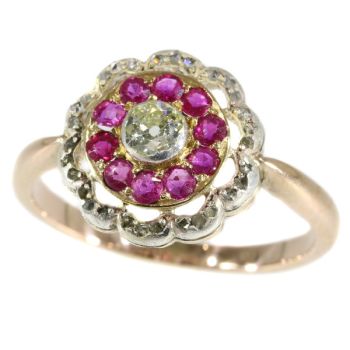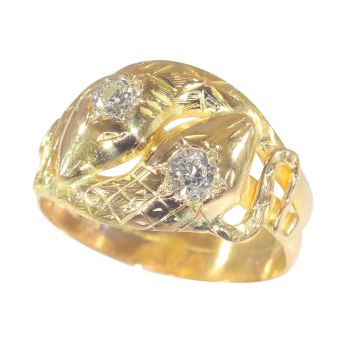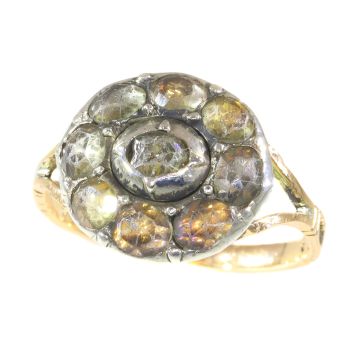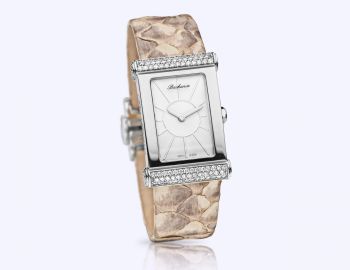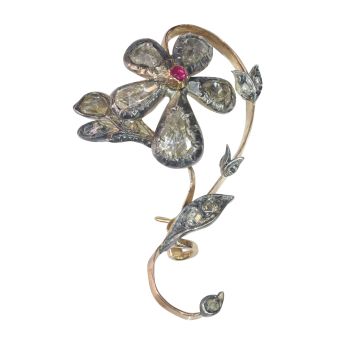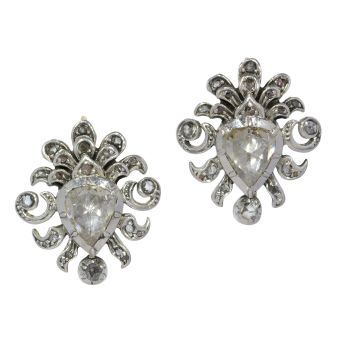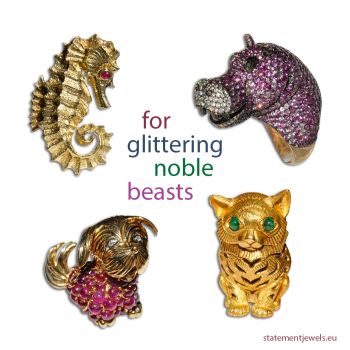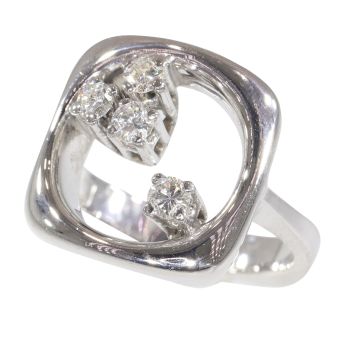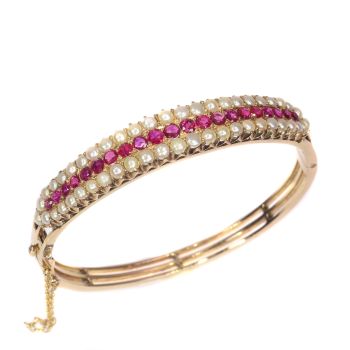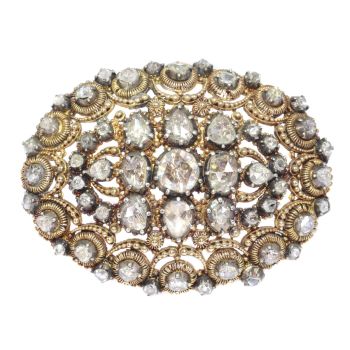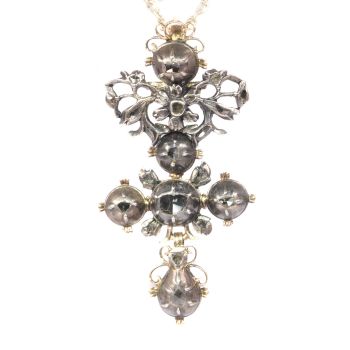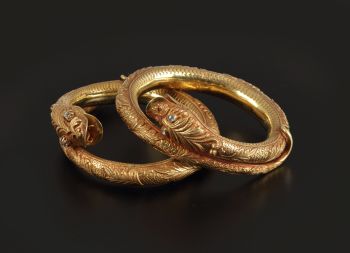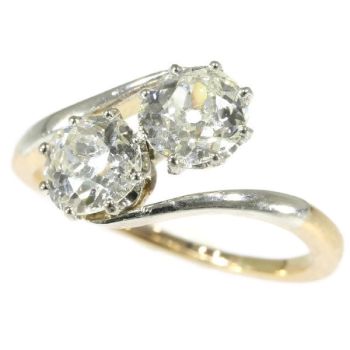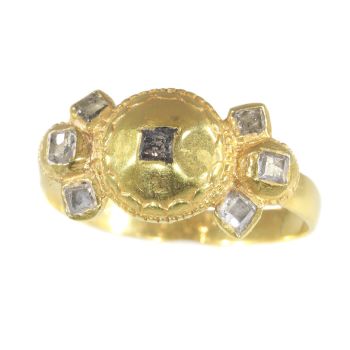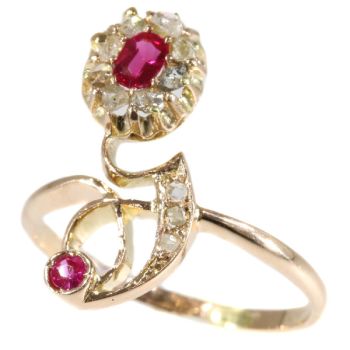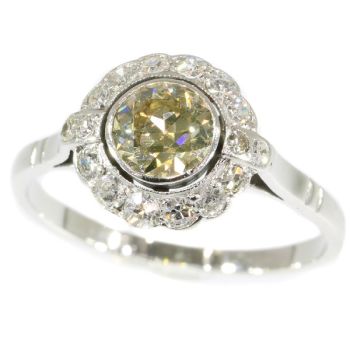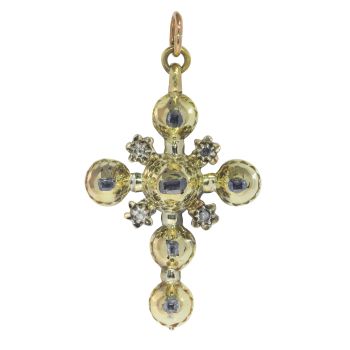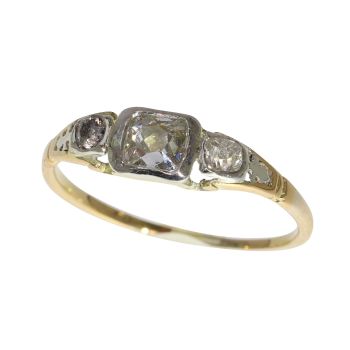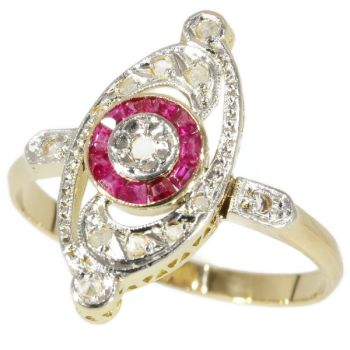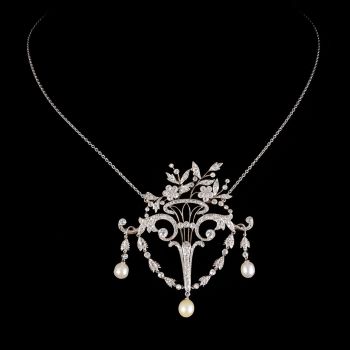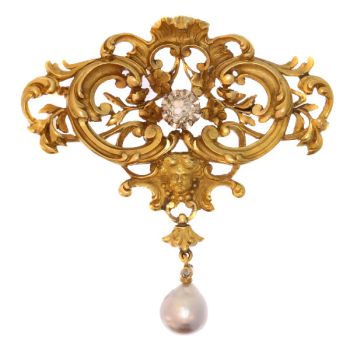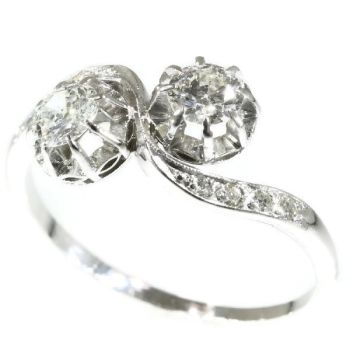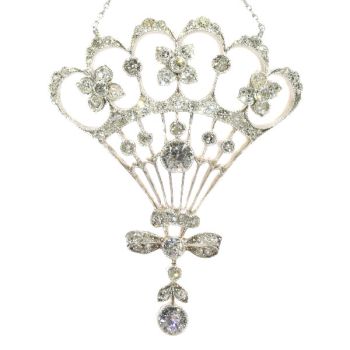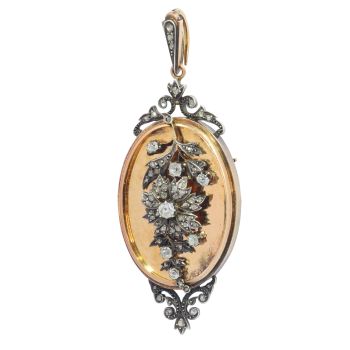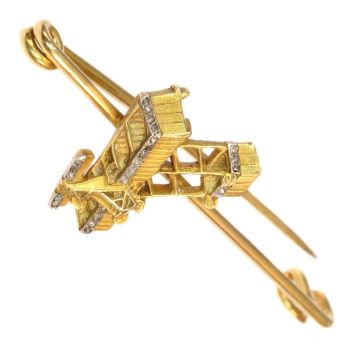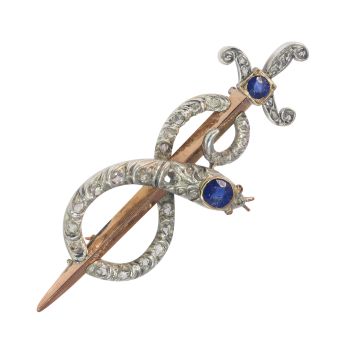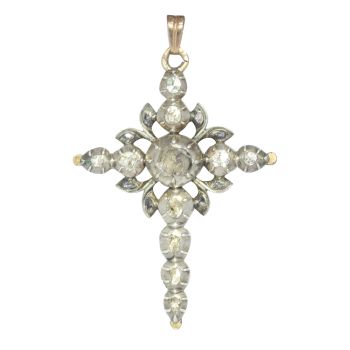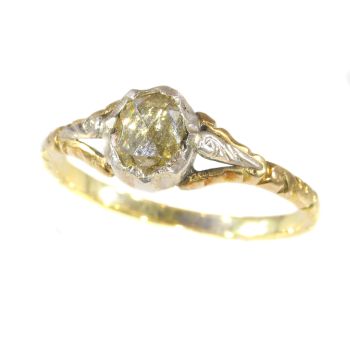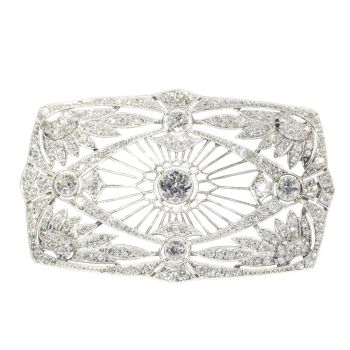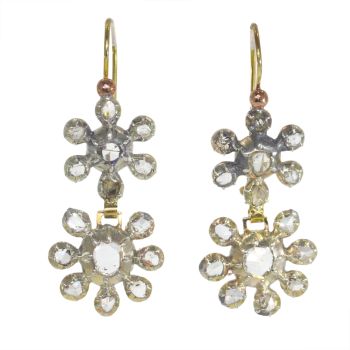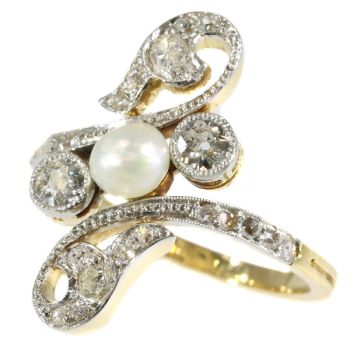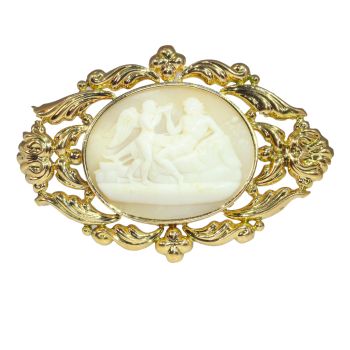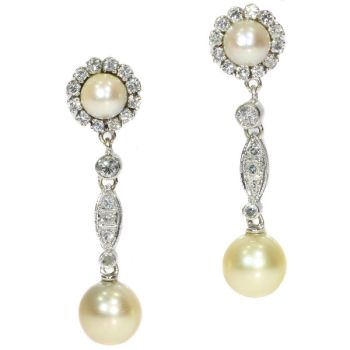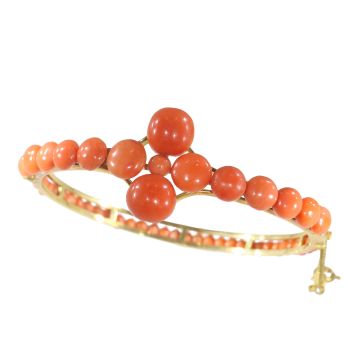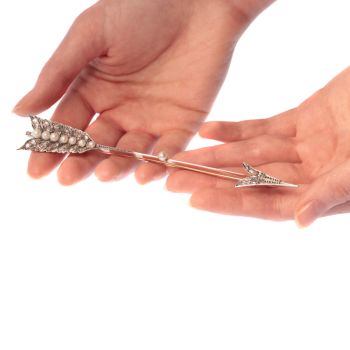Vintage Allure: 1950's Art Deco Diamond Ring 1950
Artista Desconocido
DiamantePiedra preciosa
€ 4.450
Adin Fine Antique Jewellery
- Sobre la obra de arte
This vintage 1950s platinum ring, an exquisite piece from the Art Deco-inspired Fifties, celebrates the era's fascination with geometry. Its captivating design features an old brilliant cut diamond, complemented by triangular side stones and aconstellation of single brilliant cut diamonds. The ring's geometric precision, a hallmark of the period, not only showcases craftsmanship but also symbolises the harmony and balance in enduring love. Its timeless design, while echoing the past,continues to resonate with contemporary aesthetics, making it a perfect emblem for both engagement and anniversaries.
Antique jewelry object group
Vintage Allure: 1950's Art Deco Diamond Ring
Condition
very good condition
more info on our condition scale
Country of origin
unknown
Style
Vintage Fifties (of the twentieth century)
See also: Fifties (of the twentieth century)
more info on styles
Style specifics
This type of jewelry is very specific for the fifties of the twentieth century. The Art Deco period preceded only 20 years and was still used as source of inspiration, it is (even for the trained eye) sometimes very hard to note the difference betweenArt Deco and Fifties.
Period
ca. 1950
Events & facts of this era, poetry of this era, fashion of this era.
Material
platinum (touchstone tested)
more info on precious metals
Extra information
Diamond is the birthstone for the month of April, and besides being the most popular gemstone for engagement rings, it is also the anniversary gem for the 10th and 60th years of marriage.
Even though the diamond is the hardest of all gemstones known to man, it is the simplest in composition: it is common carbon. The ancient Greeks believed that diamonds were splinters of stars fallen to earth. It was even said by some that they were thetears of the Gods or perhaps crystallized lightning or hardened dew drops. The exact origin of diamonds remained something of a mystery for centuries.
In ancient times only kings wore diamonds as a symbol of strength, courage and invincibility. Over the centuries, the diamond acquired its unique status as the ultimate gift of love. It was said that Cupid's arrows were tipped with diamonds which have amagic that nothing else can ever quite equal.
But it wasn't until 1477, when Archduke Maximillian of Austria gave a diamond ring to Mary of Burgundy, that the tradition of diamond engagement rings began. Even the reason a woman wears it on the third finger of her left hand dates back to the earlyEgyptian belief that the vena amoris (vein of love) ran directly from the heart to the top of the third finger, left hand.
Diamonds
One old brilliant cut diamond with an estimated weight of ± 0.28ct
Two triangle cut diamonds with an estimated weight of ± 0.48ct
20 single brilliant cut diamonds (also called 8/8)with an estimated weight of ± 0.50ct
Total diamond count
23 pcs.
Total diamond weight
approx. 1.26 crt with an average colour and clarity F/H, vs/si
All diamond weights, color grades and clarity are approximate since stones are not removed from their mounts to preserve the integrity of the setting.
All diamonds we offer are screened by the I.J.G.C. for whether they are natural or synthetic, and all diamonds in this jewel are 100% guaranteed to be natural.
Birthstones
Diamond is the birthstone (or month stone) for April.
more info on birthstones
Hallmarks
No trace.
more info on hallmarks
Dimensions
top of ring 1,66 cm (0,65 inch) x 2,07 cm (0,81 inch)
see picture with a ruler in millimeters and inches
Weight
5,10 gram (3,28 dwt)
Ring size Continental EU: 56 & 17¾ , Size USA: 7½ , Size UK: O½
Resizing
Free resizing (only for extreme resizing we have to charge).
more info on ring sizes
Adin Reference Nº
24002-0086
Copyright photography
Adin, fine antique jewellery
Additional information
our latest acquisitions
jewelry glossary
wall of fame
visit us in Antwerp
subscribe to our mailinglist
- Sobre el artista
Puede suceder que un artista o creador sea desconocido.
Algunas obras no deben determinarse por quién está hecho o por (un grupo de) artesanos. Algunos ejemplos son estatuas de la Antigüedad, muebles, espejos o firmas que no son claras o legibles, pero también algunas obras no están firmadas en absoluto.
También puedes encontrar la siguiente descripción:
•"Atribuido a …." En su opinión, probablemente una obra del artista, al menos en parte.
•“Estudio de….” o “Taller de” En su opinión, una obra ejecutada en el estudio o taller del artista, posiblemente bajo su supervisión
•“Círculo de…” En su opinión, una obra del período del artista que muestra su influencia, estrechamente asociado con el artista pero no necesariamente su alumno.
•"Estilo de …." o “Seguidor de…”. En su opinión, una obra ejecutada al estilo del artista pero no necesariamente por un alumno; puede ser contemporáneo o casi contemporáneo
•"Manera de …." En su opinión una obra al estilo del artista pero de fecha posterior
•"Después …." En su opinión, una copia (de cualquier fecha) de una obra del artista
•“Firmado…”, “Fechado…” o “Inscrito” En su opinión, la obra ha sido firmada/fechada/inscrita por el artista. La adición de un signo de interrogación indica un elemento de duda.
•“Con firma…”, “Con fecha…”, “Con inscripción…” o “Lleva firma/fecha/inscripción” en su opinión la firma/fecha/inscripción ha sido añadida por alguien que no es el artista
¿Está interesado en comprar esta obra de arte?
Artwork details
Related artworks
Artista Desconocido
UN INUSUAL PLATO DE PLATA CON LOBBED INDONESIOlate 17th
Precio a consultarZebregs & Röell - Fine Art - Antiques
1 - 4 / 12- 1 - 4 / 24
- 1 - 4 / 24
Fontana
Broche-colgante de canasta de flores1900 - 1905
Precio a consultarAns Hemke-Kuilboer Juwelier & Antiquair
1 - 4 / 24- 1 - 4 / 12








